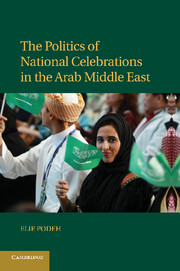Summary
I have always been struck by national events, such as the raising of the flag, the playing of the anthem, military parades, and ceremonies commemorating historical martyrs. Such events often succeed in raising the level of emotionality of the individual, arousing some atavistic feelings of belonging to some greater collectivity and an imagined homeland. My interest in this subject dates back many years, when, as a young officers' cadet, I practiced for several weeks in preparation for participation in a military parade on the occasion of Israel's Independence Day. As I was dutifully fulfilling the orders of my command and enjoying the fact that the routine of my officers' course had dramatically changed, I could not help but wonder about the utility of this ritual. Futile or not, the parade was an ecstatic moment for both participants (myself included) and spectators. And though military parades are no longer held in Israel, Independence Day, like other national holidays, is ceremoniously celebrated. On that day, ordinary Israelis are asked to take part in a range of holiday activities intended to signify and sanctify the existence of the Israeli (particularly Jewish) state. Some do it enthusiastically, some do it out of habit, and some exhibit a noticeable measure of indifference and apathy. To be sure, Israel – as we shall see in this volume – is not unique in defining itself, inter alia, through the existence of a national calendar, with commemoration and celebration days.
- Type
- Chapter
- Information
- Publisher: Cambridge University PressPrint publication year: 2011



